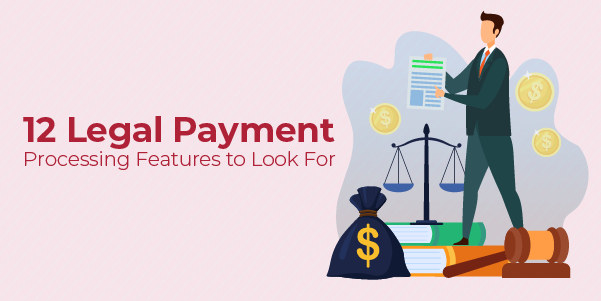SOC 2 Compliance: A Must-Have for SaaS Solutions in Law Firms

Security incidents come for us all, large or small. If you’re leading a law firm, you need to be prepared. Although the healthcare industry has the most issues with security threats, according to a 2023 report from IBM, 27% of law firms have been affected.
This number will likely increase in 2024. If you don’t want to become a statistic, take a hard look at your security protocols and compliance.
Is your law firm regularly patching your software? Do you know where all of your client data is and how it is used? Do you have a disaster recovery plan? Are your systems compliant with SOC 2 (Service Organization Control Type 2) guidelines and regional privacy laws?
That’s not an exhaustive list of the questions you should be asking, but it’s a place to start. Especially important, though, is SOC 2 compliance. If you’re using a software as a service (SaaS) solution for any of your operations, it’s one of the best ways to reduce your risk of security compromise.
Let’s take a closer look.
What is SOC 2 compliance? Why do you need it?
Because you collect, store, and use a lot of client data, you should have strong security measures placed around your tech stack and any software, like a legal practice management solution. Ideally, you will be using one that complies with SOC 2 guidelines.
SOC 2 compliance ensures that you are securely interacting with client data. Although the way you use SOC 2 principles depends on the type of organization, there are some broadly applicable focus areas.
Specifically, SOC 2 is based on five principles:
Security
Compliance with this principle ensures that you are implementing strong security tools to protect sensitive client information and maintain confidentiality. Only clients and authorized users at your law firm (not necessarily every user) should be able to access private client data
This means that your SaaS solutions and web-based applications, like client portals, online payment processors, and other legal management tools, need to be protected against external attack. Make sure that you know your system’s vulnerabilities and that your team addresses those by:
- Keeping up with system updates
- Patching your applications as needed
- Monitoring data access
Ensuring that you are following the security principle will help you attract and retain security-conscious clients. Protecting sensitive information also builds trust with current clients.
Information availability
Ensuring information availability means guaranteeing reliable access for authorized users. A very common way data access is disrupted is a distributed denial-of-service (DDoS) attack, in which attackers flood your servers with access requests.
While the attackers likely won’t be able to access client data through a DDoS attack, they can prevent clients from using your client portal and accessing their own data. (However, not all availability failures are from deliberate attacks.)
Make sure to host client-facing applications on servers that can handle high traffic. Otherwise, on the off-chance that every client you have (or even a significant majority) decides to jump on the client portal at the same time, they’ll take it down.
This will frustrate everyone and create friction in your relationships with clients.
Bottom line: All clients should have fast, easy access to their own information at all times.
Processing integrity
Processing integrity requires accurate data processing. Your data entry and processing should be error-free and complete.
To accomplish this, perform regular security audits, which can help your firm identify areas for improvement. If there are any weak areas, consider an automated data entry solution and employee training to ensure ongoing compliance.
Confidentiality
Access to client data should be limited to personnel who are involved in those cases. If your firm is a solo venture, this only applies to you and any other organizations who might be providing services involving client data.
For larger firms, employees who are working on a client’s case should have access to the data, but other employees should not. This helps reduce the risk of unauthorized access.
Keep sensitive information on a need-to-know basis. If individuals outside your firm need the data, make sure you have encrypted communication that will block any online eavesdroppers. When necessary, select trustworthy and responsible third-party vendors that also take data security and confidentiality seriously.
Privacy
There is a difference between generic client data and personal identifiable information (PII). The privacy principle of SOC 2 emphasizes securing PII, ensuring that it is doubly protected. To comply, you must ensure that PII is handled according to the privacy disclosure that you provide to your clients.
The disclosure should cover data that your firm:
- Collects from clients
- Retains or stores
- Uses
- Discloses to other parties
A PII leak can be devastating to your law firm’s reputation, so you’ll want to stay on top of this one.
SOC 2 compliance advantages
There are more benefits to compliance with SOC 2 guidelines than just client relationships and data security.
Meeting legal and ethical standards
Law firms have always been ethically bound to protect client confidentiality and secure sensitive information. This responsibility has only grown with the rise of remote work, online transactions, and cloud-based tools.
However, there isn’t a blanket requirement for law firms to achieve SOC 2 compliance.
Even so, SOC 2 compliance supports legal and ethical standards. For firms that meet compliance thresholds, SOC 2 compliance also fulfills legal requirements like the General Data Protection Regulation in Europe and the California Consumer Privacy Act in California. Many other regions and states have begun implementing similar regulations, so having a leg up on compliance can only work in your favor.
Additionally, the self-auditing done while determining whether your firm is SOC 2 compliant means you’ll have an opportunity to decide how to handle security incidents. You’ll want to figure out how your firm will maintain operations during disruptions and security incidents.
Your clients will appreciate how prepared you are.
Improving operations and vendor management
Self-auditing isn’t just useful for getting your internal processes up to par. The process also promotes security awareness among staff, which you can (and should!) augment with security training. Disaster recovery plans don’t do you much good if attorneys and legal staff don’t know what to do.
Compliance can help simplify auditing and reporting as well. There’s less pressure during a self-audit, and the resulting documentation can be adapted for real audits
Supporting growth and consistent improvement
SOC 2 is commonly used by larger companies to self-audit and provide insights into their security environment. By using the same guidelines, you can prepare your firm to work with larger clients and to adopt new technologies.
Because you will be familiar with SOC 2, you’ll be able to do both of these things securely and with compliance in mind. Generally, organizations get the best results when they consider security from the beginning.
Achieving SOC 2 compliance with Rocket Matter
Handling all of these requirements can be overwhelming, especially if your area of expertise is law, not data privacy. To help you navigate SOC 2 compliance, Rocket Matter practice management software comes out of the box SOC 2 compliant.
Rocket Matter takes care of everything from encryption to disaster recovery planning to data controls. Automated data entry minimizes human error, and our software ensures that all data are handled according to your privacy disclosure.
See how our SOC 2 compliant software leads to higher profits and happier clients, and schedule a demo with us today.
Share post:









